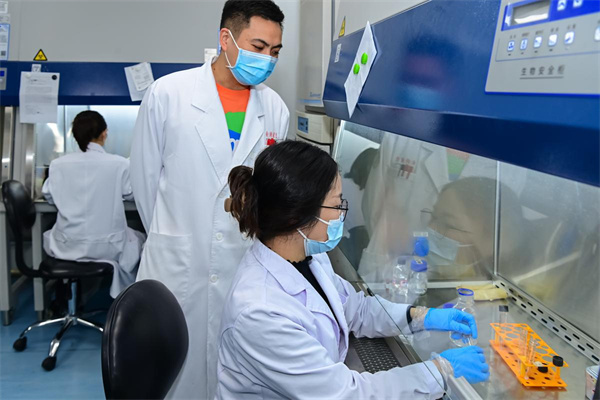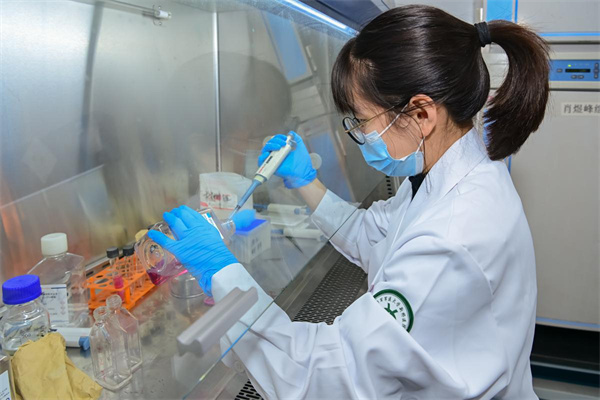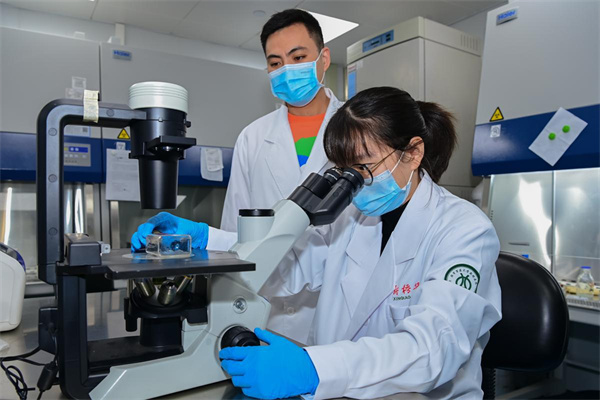
A research team at Second Affiliated (Xinqiao) Hospital of Army Medical University in Chongqing designed a new nanoprobe for diagnosing early gastric cancer. [Photo by Tan Youming/For chinadaily.com.cn]
A research team at Second Affiliated (Xinqiao) Hospital of Army Medical University in Chongqing has designed a nanoprobe that could offer new methods for the diagnosing early gastric cancer.
Their study — In Vivo Anchoring Bis-Pyrene Probe for Molecular Imaging of Early Gastric Cancer by Endoscopic Techniques — was published in Advanced Science, an interdisciplinary opens-access journal of American publishing house John Wiley & Sons. Wiley is a multinational publisher founded in 1807 that focuses on academic publishing and instructional materials.

A research team at Second Affiliated (Xinqiao) Hospital of Army Medical University in Chongqing designed a new nanoprobe for diagnosing early gastric cancer. [Photo by Tan Youming/For chinadaily.com.cn]
The nanoprobe emits yellow-green fluorescence for imaging under blue laser light, and is able to target human gastric cancer tissue. It is the first probe to be designed for the diagnosis of early gastric cancer in this way, which is of great clinical significance, said Yang Shiming, director of the team from the hospital's gastroenterology department.
He said the probe was jointly devised and built by the hospital, the National Center for Nanoscience and Technology, along with experts worldwide.

A research team at Second Affiliated (Xinqiao) Hospital of Army Medical University in Chongqing designed a new nanoprobe for diagnosing early gastric cancer. [Photo by Tan Youming/For chinadaily.com.cn]
In recent years, with the development of endoscopic techniques, blue laser endoscopy, or BLE, has quickly drawn attention as one of the most effective methods for the early diagnosis of gastric cancer, the study said.
It noted that gastric cancer is one of the most common malignant tumors and has a five-year survival rate of only about 19 percent at stage IV. Accurate early diagnosis using the new probe could improve patient survival rates, it said.

A research team at Second Affiliated (Xinqiao) Hospital of Army Medical University in Chongqing designed a new nanoprobe for diagnosing early gastric cancer. [Photo by Tan Youming/For chinadaily.com.cn]